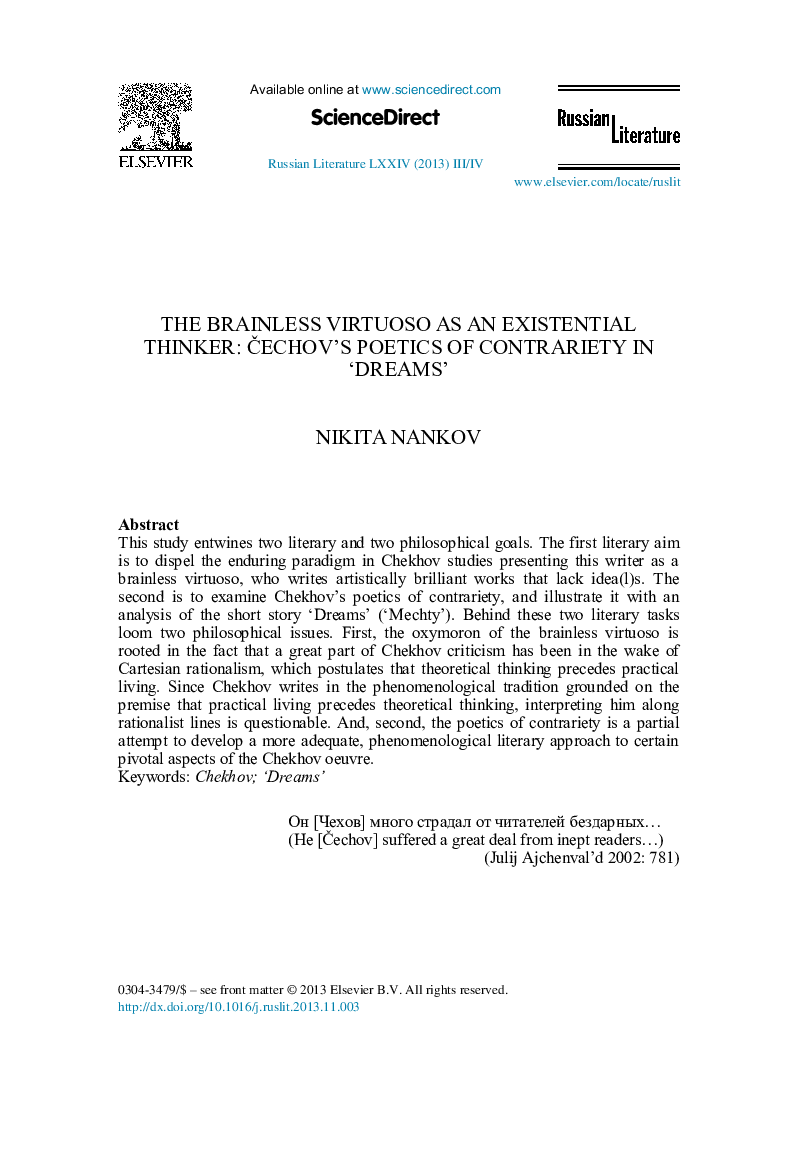| Article ID | Journal | Published Year | Pages | File Type |
|---|---|---|---|---|
| 1103875 | Russian Literature | 2013 | 35 Pages |
This study entwines two literary and two philosophical goals. The first literary aim is to dispel the enduring paradigm in Chekhov studies presenting this writer as a brainless virtuoso, who writes artistically brilliant works that lack idea(l)s. The second is to examine Chekhovʼs poetics of contrariety, and illustrate it with an analysis of the short story ‘Dreams’ (‘Mechty’). Behind these two literary tasks loom two philosophical issues. First, the oxymoron of the brainless virtuoso is rooted in the fact that a great part of Chekhov criticism has been in the wake of Cartesian rationalism, which postulates that theoretical thinking precedes practical living. Since Chekhov writes in the phenomenological tradition grounded on the premise that practical living precedes theoretical thinking, interpreting him along rationalist lines is questionable. And, second, the poetics of contrariety is a partial attempt to develop a more adequate, phenomenological literary approach to certain pivotal aspects of the Chekhov oeuvre.
